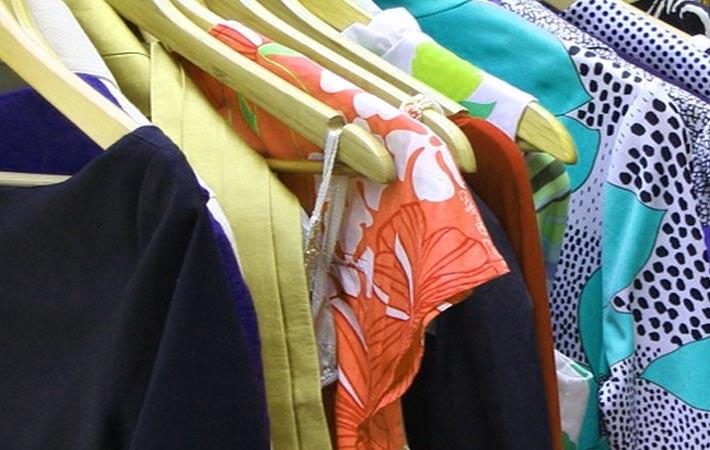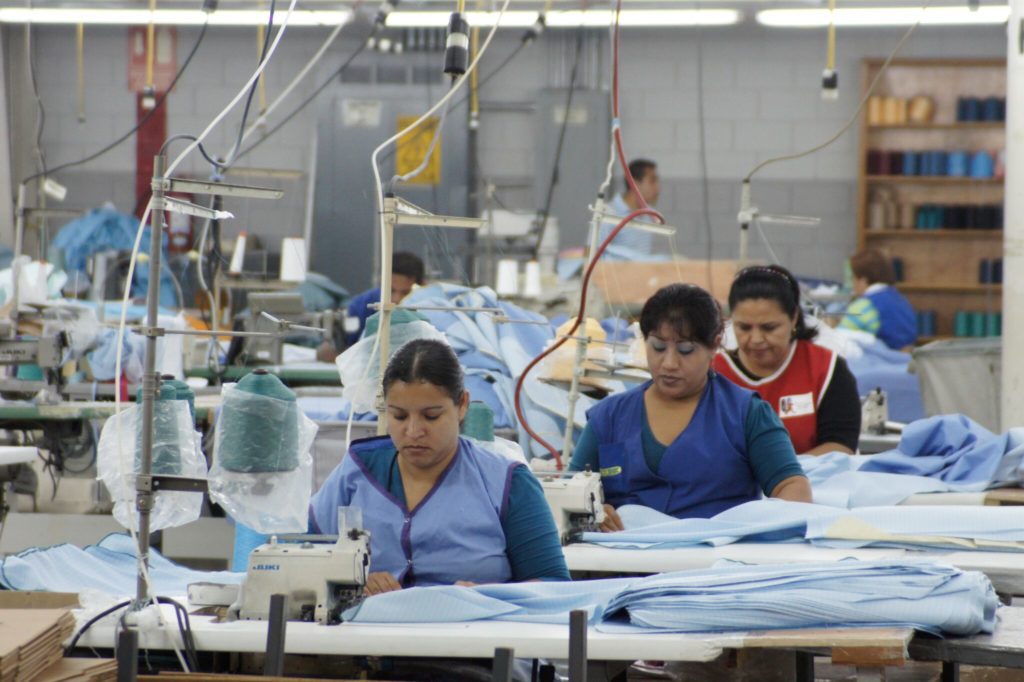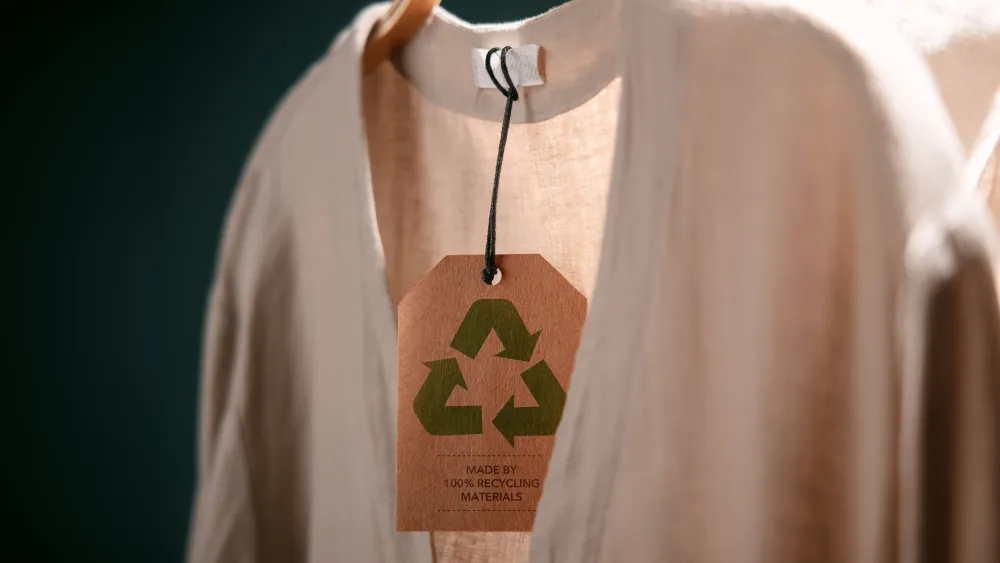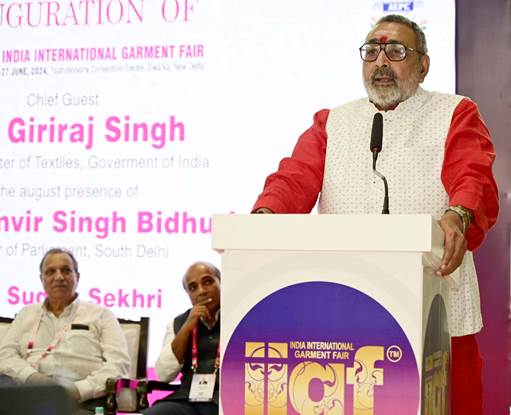FW
On June 25, the Indonesian government announced two new protection policies to safeguard the local textile industry from a rise in imports. The measures include the Safeguard Measures Import Duty (BMTP) and the Anti-Dumping Import Duty (BMAD).
Finance Minister MulyaniIndrawati stated that these policies aim to prevent significant losses in the domestic industry caused by an influx of imported textiles that compete directly with local products. The BMTP will act as a state levy to mitigate threats to domestic manufacturers, while the BMAD will serve as an additional import duty.
The decision, endorsed by President JokoWidodo, came after a cabinet meeting at the Presidential Palace in Jakarta. Minister of Trade ZulkifliHasan emphasized the urgency of these regulations, which align with the directives of the Minister of Trade and the Minister of Industry.
Statistics from Indonesia's first quarter of the year indicate a rising trend in textile and accessory imports. January saw an import value of $12.26 million, which increased to $20.87 million in February and further to $23.98 million in March. These figures underscore the necessity of the new protection measures to support local industries.
Bangladesh’s garment exports to the European Union (EU) rose by 2 percent Y-o-Y to reach $21.64 billion in the July’23-May’24 period of the current fiscal year. The country witnessed significant growth in exports to Spain, France, the Netherlands, Poland, and Denmark, which increased by 6.23 percent, 1.02 percent, 16.27 percent, 17.28 percent, and 26.96 percent, respectively.
However, exports to its largest market in the EU, Germany declinedby 10.12 percent Y-o-Y, as per data from the Export Promotion Bureau, compiled by the Bangladesh Garment Manufacturers and Exporters Association. Exports to Italy also dwindled by of 6.1 percent over the 11-month period ending in May.
In contrast, garment exports to the US fell by 3.43 percent, amounting to $7.46 billion during the same period. Meanwhile, exports to the UK grew by 12.34 percent Y-o-Y to $5.15 billion, and exports to Canada saw a slight decline of 0.31 percent, totaling $1.3 billion.
Despite these mixed results in traditional markets, garment exports to non-traditional markets increased by 6.47 per cent Y-o-Y, reaching $8.18 billion. Notable growth was recorded in shipments to Japan, Australia, and South Korea, which rose by 1.83 percent, 11.76 percent, and 14.34 percent, respectively. Conversely, exports to India decreased significantly by 23.11 percent.
Puma has appointed Erik Janshen as the brand’s new Vice President for its Direct-to-Consumer business. In this new role, the 46-year-old will oversee Puma's direct sales channels, including its physical stores, official website, and various online marketplaces.
A German executive, Janshen has over a decade of experience in leadership roles within digital sales and DTC operations. In his most recent role, he was engaged as the Senior Vice President VP Digital Sales at Tommy Hilfiger and Calvin Klein under PVH Corp.
To succeedKarthikBalagopalan, who was appointed Managing Director of Puma India last year and had been leading the DTC business on an interim basis, Jansen will focus on enhancing sales quality and offering a seamless shopping experience, both online and offline to consumers.
AmeFruendt, CEO, Puma, affirms, Jansen’s leadership will enable Puma enhance consumers’ shopping experiences through DTC channels, thereby increasing the brand’s recall potential. His innovative approach and passion for consumer-centric strategies will help enrich its DTC business, adds Fruendt.
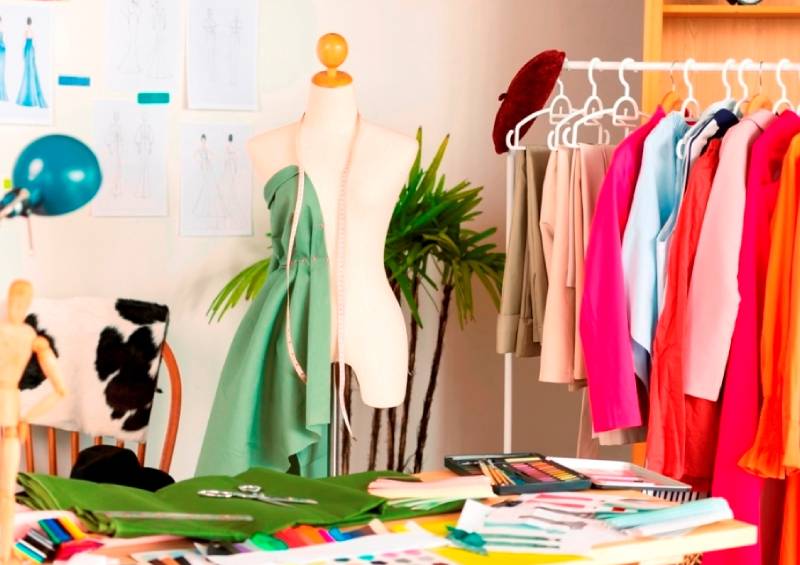
Imports and exports of textiles and apparel in the US dipped in the first quarter of 2024, reveals Department of Commerce US Department of Commerce statistics. This follows a year of significant decline in clothing imports, which plunged by 22 per cent in 2023 to €77.8 billion. Notably, European luxury goods were the only category to escape this downward trend.
Import slump continues
US data shows the first quarter of 2024 saw a continuation of the import slowdown. Total textile and clothing imports fell by 4.7 per cent to $24.6 billion compared to the same period in 2023. China remained the top supplier to the US, with textile and apparel imports reaching $5.5 billion, a 3.6 per cent increase. Vietnam ($3.7 billion) and India ($2.3 billion) maintained relatively stable positions, though India did experience a slight decline of 4.37 per cent. The most substantial drop came from Bangladesh, with a decrease of 17.3 per cent to $1.8 billion. The European Union experienced a 4.1 per cent decrease in exports to $1.4 billion. Mexico also saw a notable decline of 11.9 per cent to $989 million.
EU and neighboring countries see export slowdown
The slowdown impacted exports as well, with a decrease of 4.46 per cent to $5.7 billion compared to Q1 2023. The European Union witnessed a 4.1 per cent decline in exports to $1.4 billion. Mexico, the US's largest export customer, also saw a 4.9 per cent fall to $1.7 billion. Other notable drops were seen in Indonesia (13.3 per cent), Canada (5.40 per cent), and Honduras (11.6 per cent). Interestingly, China saw a significant rise in imports from the US (14.5 per cent increase to €185 million). The Dominican Republic, Japan, and the UK also experienced modest growth in US exports.
Comparison with previous year
The import slowdown follows a year of a much sharper decline (21 per cent) in 2023, which reached $104.9 billion. US exports in 2023 remained relatively stable at $23.6 billion compared to $24.8 billion in 2022.
Table: Import-export of textiles and apparel (January-March)
|
Country/Region |
US imports (in bn) |
Change (%) |
US exports (in bn) |
Change (%) |
|
China |
5.5 |
+3.6 |
N/A |
N/A |
|
Vietnam |
3.7 |
+1.8 |
N/A |
N/A |
|
India |
2.3 |
-4.37 |
N/A |
N/A |
|
Bangladesh |
1.8 |
-17.3 |
N/A |
N/A |
|
European Union |
1.4 |
-4.1 |
0.643 |
-10.8 |
|
Mexico |
N/A |
N/A |
1.7 |
-4.9 |
|
Canada |
N/A |
N/A |
1.8 |
-5.4 |
The slowdown in US textile and apparel trade in Q1 2024 reflects a broader trend in the global market. Industry experts remain cautious about the future, with factors like inflation and geopolitical tensions potentially impacting trade flows in the coming quarters.
In an effort to counter the rise of discount startups likeTemu and Shein, Amazon.com Inc plans to launch an online storefront for low-priced apparel and home goods. The new mall will appear in the company’s own section of Amazon’s website
The Seattle-based e-commerce company currently ships goods directly to its customers from China. Amazon and other US retail incumbents are grappling with the rapid rise of Temu, a unit of PDD Holdings Inc, and online fashion retailer Shein, which have lured customers with steep discounts and, in Temu’s case, a barrage of advertising on television and social media.
To compete with Shein’s bargain basement prices, Amazon this year, began cutting the fees it charges merchants to sell low-priced clothing.
The South India Spinners Association (SISA) has advised the Cotton Corporation of India (CCI) to sell cotton primarily to cotton textile mills in the MSME sector from July 01.
Currently at a critical juncture, the textile industry in India is grappling with several financial struggles, says SJagadeshChandran, Secretary, SISA. This has led to several textile mills in Tamil Nadu ceasing operations due to financial crisis, high operational costs, and market volatility. Compounding these challenges is a notable decline in yarn and textile exports, as well as increased pressure from imports, he claims.
To mitigate this situation, the CCI needs to sell its stock of 24 lakh bales only to the MSME spinning mills for three months, opines Chandran.
Four months ago, as the cotton prices increased from Rs 58,000 to Rs 63,000 a candy, the industry requested the Ministry of Textiles and the CCI to abstain from selling cotton to traders. The ministry too advised the CCI to stop selling cotton to traders, leading to prices dropping to Rs 57,000 a candy and remaining stable for four months, he adds.
Expanding its digitalisation efforts, Biella Yarn showcased its new flat knitting collectionat PittiFilati from June 25-27, 2024.
Developed in collaboration with Knitwear Lab, the Dutch Design and Development Centre renowned for its knitting expertise, the collection offers a perfect balance for slowing down and reconnecting in our fast-paced world.
Drawing inspiration from the subtle patterns found in nature, such as soft waves in sand and organic markings on stone, the collection presents tone-on-tone color mixtures that emanate a sense of calm, minimalism and harmony.This season, the collection expands to include luxurious fine bouclé yarns and blends that combine the natural softness of wool with the elasticity of PBT.
Inspired by this season’s theme, garments crafted by MRC Knitwear Research Lab, Biella Yarn's partner, feature plush jacquards, varied textures, and uneven surfaces by combining contrasting yarn textures with special stitches.
At a review meeting of the Industrial Policy and Investment Promotion Department at Mantralaya, Mohan Yadav, Chief Minister, Madhya Pradesh, urged for the swift completion of processes for the Rs5 billion integrated textile and apparel park project in Dhar district, which has been approved by the Textile Ministry.
Highlighting the importance of this project, Yadav underscored the need for concerned agencies to promptly fulfill their roles to achieve the target of employing over 25,000 people through 21 units in the PM mega textile park, as stated in a press release by the government of Madhya Pradesh.
The proposal to establish the PM MITRA Park in Bhensola village, Badnawar Tehsil, Dhar district, received formal approval from the government of India in March 2023. The MoU between the Ministry of Textiles and the government of Madhya Pradesh was signed in Dhar district on May 21, 2023.
Yadav also discussed the proposed industrial policy, instructing the preparation of an integrated plan for the development of industries. He pointed out that various ministries of the Central Government have already approved the establishment of different industrial units in Madhya Pradesh, stressing the urgency of implementing these projects.
The proposed investment of Rs350 billion in mega projects in Pithampur and Ratlam is expected to create employment for over 100,000 people. The development of the Indore-Pithampur Economic Corridor, covering 3,200 acre, is projected to cost Rs21.25 billion and employ about 100,000 people. Additionally, Indore’s multimodal logistics park, with an investment of with an investment of Rs20 billion, will provide jobs for more than 5,000 people.
The state government is prioritising the establishment of employment-oriented industries and plans to celebrate 2025 as the year of industry. An investors summit is proposed for January 2025, with regional industrial summits to be held across the state. Yadav will also meet with industrialists in major Indian cities to attract new industrial investments.
Initiatives benefiting the youth in industries and business will be conducted in cooperation with the Madhya Pradesh Council of Science and Technology (MAPCOST) and organisations like ISRO. Yadav issued several key instructions, including the preparation of an integrated industrial development plan, organising regional industrial conclaves, holding meetings with industrialists for new investments, focusing on employment-oriented industries, and preparing for the investors summit.
The inauguration of 78 industrial units in the state is scheduled soon. The meeting also reviewed the progress of the industry summit held last year and the Regional Industry Conclave-2024 held on March 1 and 2 in Ujjain.
Vietnam surpassed China to become the leading exporter of textiles and garments to the United States during the first five months of this year. The nation achieved the highest export growth among the world's top three exporters in this category, according to the Vietnam National Textile and Garment Group (Vinatex).
From Jan-May’24, Vietnam's textile and apparel exports to the US amounted to approximately $16 billion, marking a 5 percent Y-o-Y increase. Of this, $6 billion was generated from the US market, reflecting a 4 percent rise compared to the same period last year.
With these results, Vietnam has overtaken China to secure the largest market share of textile and garment exports to the United States. According to Cao HuuHieu, General Director, Vinatex, Vietnam also recorded the strongest export growth among the top three global exporters during this period.
The other top three exporting nations are Bangladesh and China. Vinatex data shows that Bangladesh’s export earnings increased by 3.9 per cent to $21.7 billionwhile China's total textile-garment export turnover decreased by 2 per cent from Jan-May to $66 billion. Vinatexattributed Vietnam's rise to the transfer of numerous orders from other countries to Vietnam and a 5 percent decline in the value of the Vietnamese dong relative to the US dollar, rather than an increase in global demand.
In response to intense market competition, many textile businesses in Vietnam have started producing items made of blended and recycled fibers, which are outside their traditional expertise, to capture niche markets. Despite this shift, these businesses continue to produce traditional cotton fiber products.
At the same time, companies are upgrading production technology, promoting research and development of new products, and seeking new customers to reduce reliance on established markets.
ReHubs has unveiled its newly elected Board of Directors, signaling a major advancement in its initiative to expand fibre-to-fibre textile recycling across Europe. The election occurred at the ReHubs Annual Event in Barcelona, hosted by Coleo, which also showcased a state-of-the-art Recycling Sorting Facility. This facility, developed through the partnership between Coleo and ReHubs, marks a significant leap in textile recycling technology.
The newly appointed Board comprises industry leaders from various partner organizations who will collaborate with Executive Director Chris Deloof to strengthen ReHubs' capacity-building and knowledge-sharing efforts.
Members of the Board include Acerina Trejo Machin from Resortecs, Alain Poincheval representing Reju, Anna Pehrsson of Texaid, BouraouiKechiche from Decathlon, Carl Baekelandt affiliated with Concordia Textiles / PurFi, David PuyueloHuguet from Coleo, Dirk Vantyghem of Euratex, Felix Poza Pena from Inditex, Mariska Boer representing Boer Group, OutiLuukko from Rester, and Veronique Allaire Spitzer of Refashion.
During the two-day event, ReHubs' 25 partners actively participated in discussions aimed at fostering collaboration and exchanging innovative ideas. Key highlights featured policy updates from Euratex and dialogues with the European Investment Bank concerning their Venture Debt Program and Advisory Services.
Chris Deloof underscored the significance of collaboration, emphasizing how bringing together individuals with a shared vision over these days had reinforced their commitment to achieving collective goals and closing the loop.
Coleo CEO David Puyuelo highlighted the importance of relentless collaboration, showcasing their new facility in Mataro. As ReHubs continues to expand, it invites interested parties to join its mission to industrially scale up textile waste recycling in Europe.

